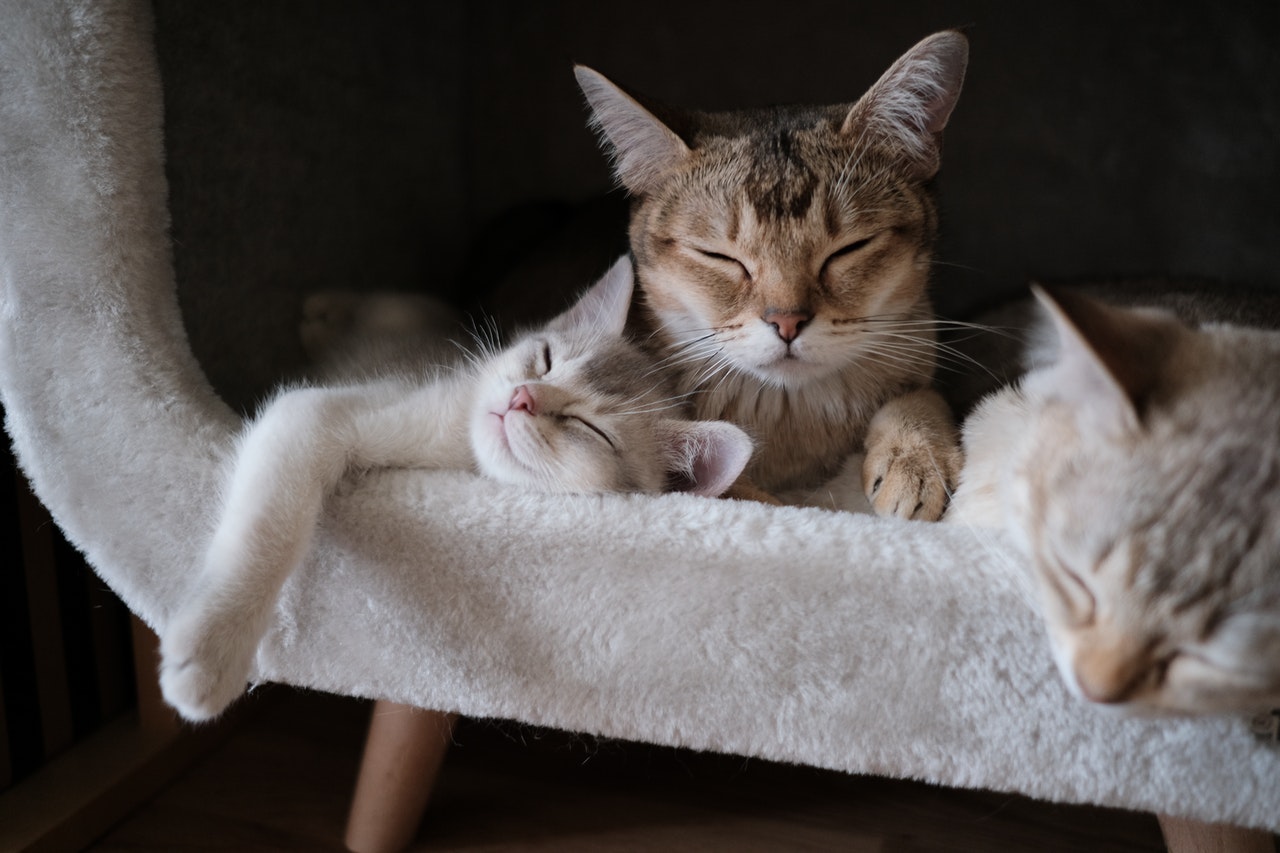While we all know that we should take our cats to the vet at the first sign of illness, there’s some confusion about how often you should take your cat to the vet for regular checkups. Because cats are less likely to chew our shoes, eat table scraps, and gnaw on furniture, many people assume that cats don’t require the same amount of veterinary attention as dogs. So, how often do you take a cat to the vet? The answer may surprise you. Here’s what you need to know about how often you should be taking your cat to the vet.

How often should you get your cat checked at the vet?
Dr. Randy Wheeler, executive director of the Iowa Veterinary Medical Association, claims there isn’t a rule for how often your cat should see the vet. Your vet checkup schedule depends on your cat’s age and any underlying health issues. We’ll break things down into an easy-to-follow timeline so you’ll never again feel unsure of how often you should take your feline fur baby to the vet.
Kittens (under 1 year of age)
You’ll need to go to the vet once every three to four weeks during the first 16 weeks of your kitten’s life to vaccinate her against infections and diseases. Your vet will give you a vaccination schedule determined by your kitten’s health and vaccine requirements. Because parasites are common in young kittens, your vet may want to deworm her. According to the Animal Medical Center of Chicago, you’ll also want to get your kitten tested for feline leukemia and feline immunodeficiency virus when she’s 8–12 weeks old.
Adults
Once your cat reaches 1 year of age, she’s considered an adult. You’ll want to take your cat in for a regular checkup every six months to one year, but it’s best to develop a checkup schedule with your vet. Cats with underlying health conditions will need more frequent visits than healthy cats. We’ve all heard the saying “an ounce of prevention is worth a pound of cure,” and that’s especially true when it comes to your cat’s health. Your cat will receive a head-to-tail exam and blood work during regular checkups, which can help your vet detect and diagnose health problems before your cat begins to show symptoms. Early detection is essential to successful treatment, so make sure you take your fur baby in for those regular checkups.
Seniors
For senior cats (11–14 years old) and super seniors (15 and older), maintaining a twice-yearly checkup schedule is essential. Senior cats are much more likely to develop age-related health conditions such as thyroid disease, renal problems, diabetes, pancreatitis, and cancer.
Do cats need yearly checkups?
Whether you have a new kitten or an older cat, you should be taking your fur baby to the vet at least once a year. Most veterinarians recommend checkups every six months. While this may seem excessive, taking your cat to the vet regularly can not only lead to early detection of health problems, but it also means your cat will be familiar with the vet. Most fur babies hate going to the vet — and we sympathize — but if your cat is accustomed to regular checkups, going in for an exam will be much less stressful for her.

How much does a yearly cat vet visit cost?
One reason you may hesitate to take your cat in for regular checkups is the cost. But we have good news: Annual vet visits for dogs average $200–$400, but vet visits are less expensive for cats — usually half the cost of dog visits — around $50–$200. If your cat has a medical emergency like a sudden illness, the cost of a visit can skyrocket into the thousands, one more reason we recommend regular checkups.
When should you call your vet?
Apart from taking your cat in for regular checkups, you should also keep an eye on her health at home. If you notice sudden breathing changes, coughing, and sneezing, discharge of the eyes, ears, or nose, unusual lumps or bumps, continuous vomiting or diarrhea, changes in litter box usage, lack of appetite, trauma sustained from a fight or an accident, obvious signs of distress like crying, hiding, limping, or sudden behavioral changes, see your vet right away.

Your cat is a member of your family, and she depends on you to keep her healthy and happy. Just as you go to the doctor for regular wellness visits, your cat should, too. Stick to the schedule suggested above to ensure you’re maintaining her health so she’ll be with you for years to come.



